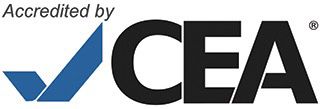Learning a new language can be challenging, but it can also have some huge benefits. For one thing, speaking more than one language is good for your brain. It helps you solve problems in new ways, improves your memory and concentration abilities, and makes it easier to communicate with people from different cultures.
When people learn a new language, they learn to solve problems in new ways.
Learning a new language is like learning to solve problems in new ways. It’s like learning how to think about and understand the world in a different way. This can be exciting and challenging at first, but as you continue to practice it becomes easier and more natural over time.
Learning languages helps people develop their cognitive skills by forcing them out of their comfort zone, which is also known as “the zone of proximal development” (ZPD). The ZPD is where students are able to learn without having everything explained directly for them—they need only receive hints about what they should do next and then figure out how best to use those clues on their own terms. This allows them to discover things independently; it encourages them not only think differently but also gives them confidence that they have power over their own learning process!
The ZPD is one reason why language education may help children develop stronger analytical thinking skills than traditional methods such as teaching or lecturing alone might do; however research into this topic has shown mixed results so far.”
People who know more than one language are better at solving problems because they’re used to thinking about things from another person’s point of view.
- Bilingual speakers are more likely to be able to communicate with more people, including potential business partners and employers in the future.
- Bilingual speakers are better at solving problems because they’re used to thinking about things from another person’s point of view.
Bilingual students perform better on standardized tests than students who only know one language.
- The more languages you speak, the more people you can communicate with. In today’s global economy, speaking more than one language is an asset that can help you find work and make friends around the world.
- Bilingual students are better at solving problems because they’re used to thinking about things from another person’s point of view.
That’s why it’s important for schools to teach students how to learn multiple languages—not just so they’ll be able to talk with people in other countries someday, but also because learning a second language makes it easier for kids to solve problems by teaching them how think about things differently than what we’re used too
Speaking two languages is good for your brain.
The benefits of bilingualism are well documented. Speaking two languages is good for your brain because it makes you smarter, more creative and better at problem solving. Speaking another language also helps you see things from another person’s point of view—a skill that’s important in diplomacy and business.
The brains of people who speak two languages work differently than those who only speak one language, according to a 2015 study in Bilingualism: Language and Cognition. Researchers found that bilingual speakers activate both brain hemispheres when they hear words, whereas monolinguals only use one side of the brain when speaking or reading out loud. This equal use of both sides is especially beneficial because it allows bilinguals to process information faster than those who only speak one language.*
Bilingualism has been shown to improve memory in older adults as well as reduce risk factors associated with Alzheimer’s disease (AD). “Our research shows that being bilingual can help prevent cognitive decline associated with aging,” said Dr. Ellen Bialystok, a professor at York University in Toronto who studies AD development among multilingual populations.*
bilingual speakers are more likely to be able to communicate with more people, including potential business partners and employers in the future.
Bilingual speakers are more likely to be able to communicate with more people, including potential business partners and employers in the future.
Speaking two languages is good for your brain. Bilingual students perform better on standardized tests than students who only know one language.
Learning diverse languages helps each person’s future.
Learning diverse languages helps each person’s future. It helps you to think about things from another point of view, it helps you to be able to communicate with more people, and it helps you to solve problems in new ways. If you know two or three languages well, then in the future when there is an unfamiliar language that comes up for translation purposes, your knowledge will help solve problems faster than someone who only knows one language.
If a person knows many different languages, then they can communicate with more people from around the world and make connections with them easily because they share a common background or culture. This makes travel easier as well since they already have something in common with their hosts while they are visiting other countries where those hosts live!
Lastly, learning more than one language gives us all the opportunity
to experience life through someone else’s eyes – what could possibly be better than that?
Conclusion
We hope that you can see the benefits of learning new languages for yourself. If you’re thinking about learning a new language, there are plenty of resources out there to help you get started! You can start by looking up some basic phrases or words in a dictionary (like us :)), watching videos on YouTube and listening to podcasts in that language. Once you feel comfortable speaking with others who speak your target language, try joining an online community or group where native speakers meet up regularly so they can practice together too. With all these resources available today thanks to technology – it should be easy enough for anyone interested in becoming bilingual!


